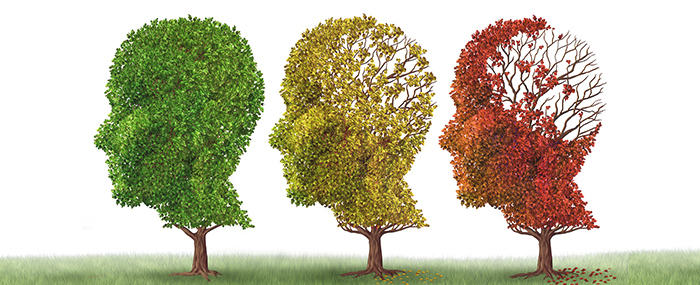Many of us work with elderly people, either in our practices or in our personal lives.
And of course, some of us are also getting closer to retirement ourselves and are starting to think about issues of brain deterioration in a more personal light.
The field of neuroscience is exploding with new revelations from the top brain research laboratories around the world.
Some of these studies are directly applicable to our work with elderly patients, while others are more theoretic and while interesting, aren’t going to be changing our work anytime soon.
With so much information available, it can be tricky to weed out what’s relevant or not, so we decided to start the process for you.

Here are some findings from neuroscience which may be directly applicable to your care of elderly patients:
- In elderly men with poor physical function, increasing general physical activity may potentially confer a protective effect or delay the onset for dementia. (Taaffe DR et al., J Gerontol A Biol Sci Med Sci, 2008)
- Tumeric, a spice commonly found in curry and many Asian and Middle Eastern dishes, may have some neuroprotective properties against ischemic stroke and traumatic brain injury – at least it does in animals. (Lapchak PA et al., Journal of Neurochemistry, 2011)
- Use of Tai Chi along with medication has been found to decrease depression in elderly patients, along with improving physical and cognitive functioning. (Lavretsky H et al., Am J Geriatr Psychiatry, 2011)
- Poor memory may be an early sign of increased risk of stroke. (Letter AJ, American Academy of Neurology’s 63rd Annual Meeting, April 2011)
- The extended release of the stress hormone cortisol can result in old-age memory loss. (Yau JLW et al., Journal of Neuroscience, 2011) This study builds on early research which showed that stress increased the risk of memory loss and mental decline in older diabetics (Reynolds RM et al., Diabetes Care, 2010) and also increased the risk of memory loss among people at risk for developing Alzheimer’s Disease (Peavy GM et al., Biological Psychiatry, 2007).
And this is just the tip of the research iceberg.
If it has whet your appetite for more of what’s happening in brain work, then I invite you to join us as we broadcast our New Brain Science Series.
Each week, we are getting into the nitty-gritty of neuroscience, particularly it’s application to our lives.
We’re tackling topics like why exercise makes a difference with the brain, how to re-wire the brain, and the role of epigenetics in healing.
To hear more, all you have to do is sign up here.
What have you found in working with elderly patients? Please leave a comment below.
It’s very easy to take on other peoples problems as your own. What I mean is… it’s very easy to try and help other people deal with their issues, however you can’t always be able to help everyone. The best thing you can do for him is let him deal with his own issues and be there for him if he needs someone to talk to. If he thinks that he is stupid and has no future and he wants to be a bum…. then maybe he should get a taste of that life to set him straight. He will find through his own trials and errors that lifestyle is not very glamorous. There is no need for you to set yourself into a panic for things that are out of your control. You can pray for him and hope that he opens his eyes and sees that his choices are not in his best interest. We are unable to change people, but the best thing we can do is try to live our own lives and set a good example and hope for others to follow. You are a very strong woman and you have been through a lot. Keep your head up and all this will work itself out.
I’ve been wondering about cortisol and aging. My father, a very shy and stressful man (perhaps with Aspergers,) died of complications form Alzheimer’s Disease. I often wondered if the stress was a contributing factor to the onset of Alzheimer’s. So that was a warning sign for me and a reminder to welcome mindfulness into my life many years ago.
Ruth, So glad you are talking on the subject of the brain and aging. In 2003 and 2004, a hotly published field was the use of different forms of exercise and body movements (tai chi, yoga, ballet, dance) and it’s impact on Parkinson’s disease. Researchers discovered those with Parkinson’s disease who used more intensive spatial and physically articulating excercises were able to navigate difficult pathway movements (such as crossing under a door frame, estimating distances, and muscular coordination).